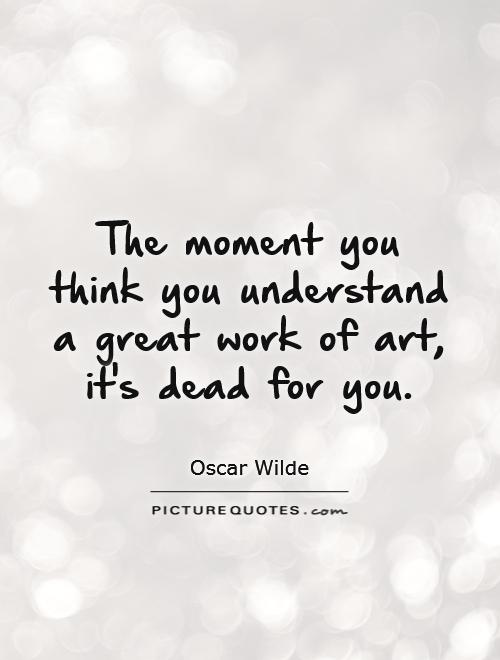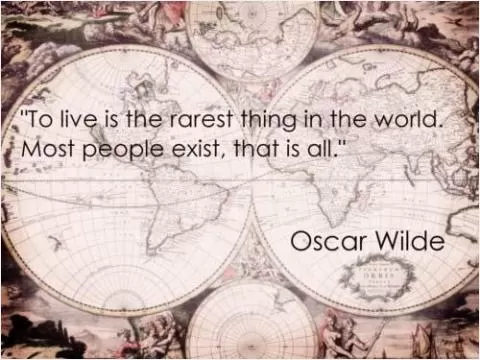The moment you think you understand a great work of art, it's dead for you

The moment you think you understand a great work of art, it's dead for you
Oscar Wilde, the renowned Irish playwright, novelist, and poet, was a firm believer in the idea that true art should be open to interpretation and should never be fully understood or dissected. He famously said, “The moment you think you understand a great work of art, it's dead for you.” This statement encapsulates Wilde's belief that art should be constantly evolving and should never be confined to a single interpretation.Wilde's own works, such as "The Picture of Dorian Gray" and "The Importance of Being Earnest," are perfect examples of art that defies easy categorization and interpretation. These works are filled with wit, irony, and social commentary, making them rich and complex pieces that can be interpreted in a multitude of ways. Wilde's writing is often characterized by its ambiguity and its ability to challenge societal norms and conventions.
In Wilde's view, art should be a living, breathing entity that continues to provoke thought and inspire creativity long after it has been created. Once a work of art is fully understood and its meaning is fixed in the mind of the viewer, it loses its power to surprise and delight. Wilde believed that true art should be enigmatic and mysterious, inviting the viewer to engage with it on a deeper level and to draw their own conclusions.
Wilde's philosophy on art can also be seen in his personal life and his flamboyant persona. He was known for his extravagant lifestyle, his sharp wit, and his unconventional views on society and morality. Wilde himself was a work of art, constantly reinventing himself and challenging the status quo.












 Friendship Quotes
Friendship Quotes Love Quotes
Love Quotes Life Quotes
Life Quotes Funny Quotes
Funny Quotes Motivational Quotes
Motivational Quotes Inspirational Quotes
Inspirational Quotes